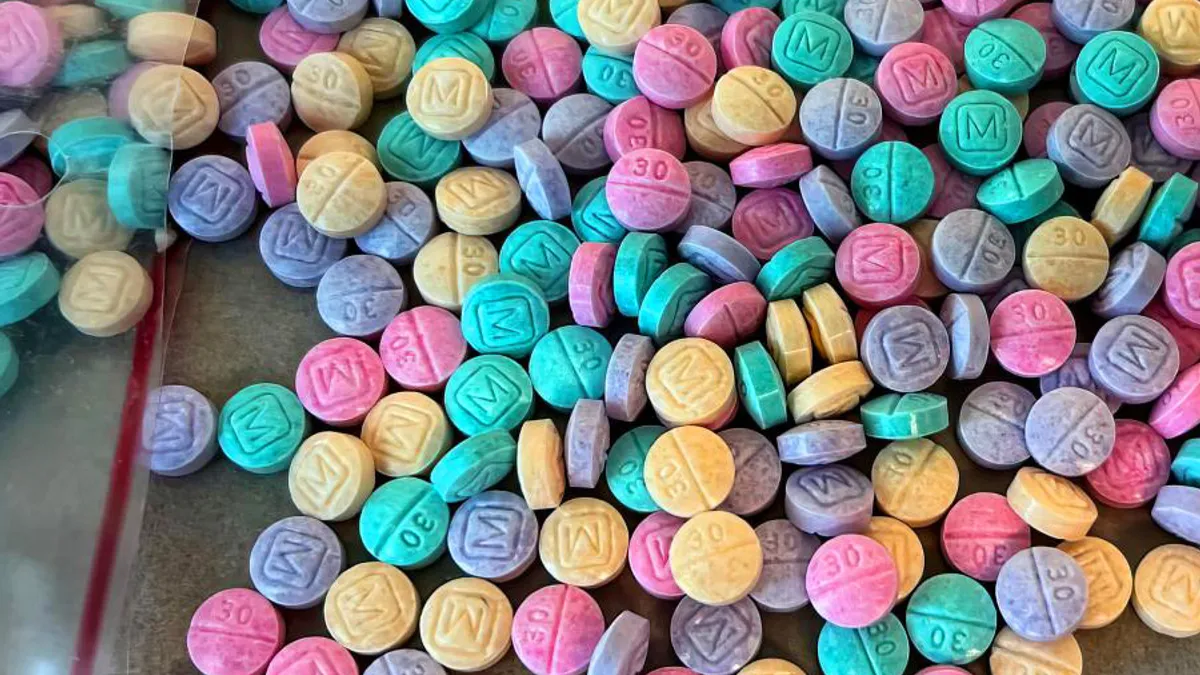Dive Brief:
- Schools need to notify all parents of a school-connected drug overdose within 24 hours, according to an executive order signed by Virginia Gov. Glenn Youngkin on Wednesday. It does not define what is included as a school-connected drug overdose.
- The directive orders the Virginia Department of Education to develop guidance regarding parental communications about overdoses and student privacy protections, as well as recommended practices for working with state law enforcement on overdose prevention programs.
- The order from the Virginia governor comes as school systems are attempting to scale up response and prevention protocols in response to a shocking rise in youth overdoses from illicit fentanyl, which is often undetected in counterfeit opioid pills.
Dive Insight:
A high school in Virginia's Loudoun County Public Schools had nine student overdoses in October, prompting the executive order, a press release from Youngkin's office said. The school system alerted parents in the district to the overdoses incidents more than 20 days later, the release said.
In a Wednesday letter addressed to "LCPS Families" and posted online, Loudoun County Public Schools Superintendent Aaron Spence said the school system had 10 suspected overdoses across six high schools this school year. Those 10 students were transported for treatment of symptoms related to a suspected opioid overdose, and four of those 10 students were administered one or more doses of naloxone, an opioid overdose reversal drug.
By comparison, last school year, the district recorded a total of four incidents requiring naloxone administration to students, the letter said.
"This number is concerning and distressing, and we will do everything in our power to ensure this does not continue," Spence said in the letter. Spence was named superintendent of the 81,100-student school district in Northern Virginia by the Loudoun County School Board in June. He was previously superintendent of Virginia Beach City Public Schools.
A Loudoun County Sheriff's Office press release dated Oct. 31 said the office was investigating at least eight opioid-related overdoses of Park View High School students. Seven of those incidents were reported over the previous three weeks, and four occurred at the school campus. Three incidents required the administration of naloxone, and two of those required CPR by school personnel.
All the overdoses appear to involve fentanyl, the sheriff's office said.
There are several benefits to alerting the greater school community about student overdoses, including that the messaging can raise awareness or be a reminder about the dangers of fentanyl, said Dr. David Deyhimy, medical director of My MAT Clinic, a private practice specializing in outpatient drug treatment for opiate and alcohol addiction in Orange County, California.
Deyhimy said parents should be alerted to drug overdoses at schools like they are alerted when there's a school shooting.
"I'd want to know that there was a shooting or some other major thing where I, as a parent, not only can be aware, but I can address it at the dinner table with my kids. I can get their feelings on this, and we'd have an open dialogue about this," said Deyhimy, who is also the chief medical advisor for End Overdose, an organization working to end drug-related overdoses through education, medical intervention and public awareness.
In addition to spreading awareness about the dangers of fentanyl, Deyhimy also recommends schools have opioid reversal medication readily available, and that students and staff are trained on how to administer the medication.
He added that sharing information about fentanyl risks with teens does not lead them to engage in risky behaviors. "It leads to empowerment, and that's what we need — to empower our kids," Deyhimy said.







 Dive Awards
Dive Awards



